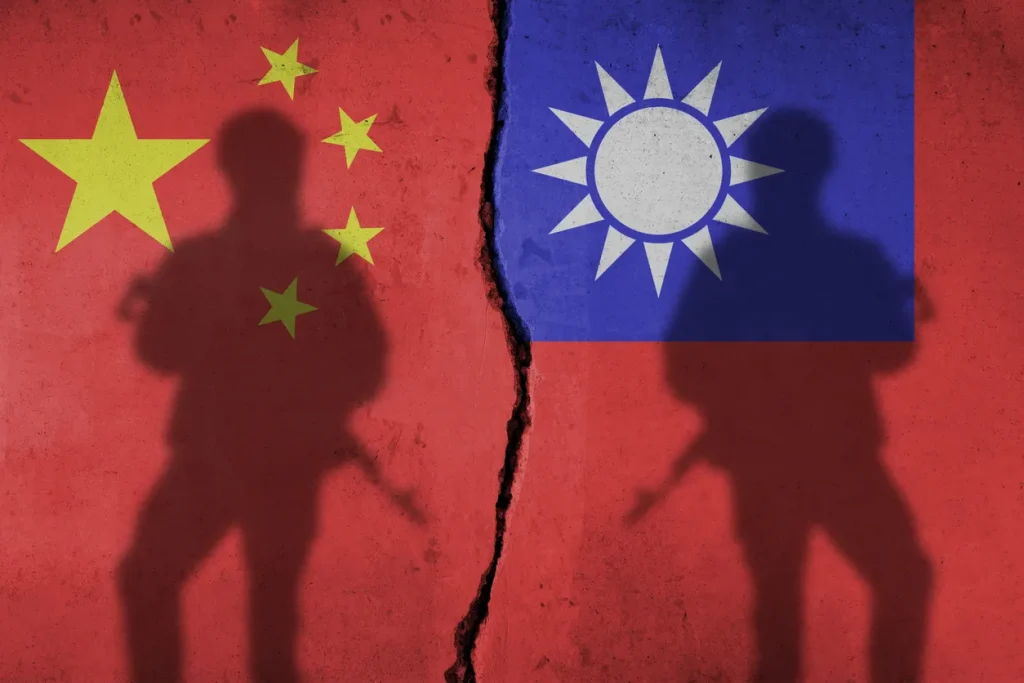The People’s Republic of China (PRC) will continue to target Taiwan with “gray zone” tactics and an “anaconda” strategy in the coming years, seeking to force Taipei to bow to Beijing without resorting to drastic measures like invasion. This includes disrupting Taiwan’s economy by targeting critical industries and infrastructure, as well as escalating covert cyberwar operations. A recent U.S. wargame team visited Taiwan to conduct a tabletop exercise focusing on economic and cyber coercion from China, highlighting the challenges Taiwan faces in defending against cyberwarfare and disinformation campaigns in an era where artificial intelligence makes “truth” harder to define.
RADM (Ret.) Mark Montgomery, the FDD’s senior director of the Center on Cyber and Technology Innovation, emphasized Taiwan’s challenges with economic continuity in the face of critical infrastructure failures. While some Taiwanese are preparing for kinetic combat as seen in Ukraine, experts believe China is more likely to start with a blockade to weaken the populace before considering an invasion. Taiwan’s defense budget is limited to purchasing equipment from the U.S., but suggestions for improvement include involving smaller, innovative companies to provide necessary tools for asymmetric defense more quickly and cost-effectively.
In both Taipei and Washington, there is a consensus on supporting Taiwan’s defense against China. The U.S.-Taiwan partnership is seen as a crucial deterrent, but there are calls for a more entrepreneurial approach to military hardware and software procurement to enhance Taiwan’s defense capabilities. Suggestions include turning the Taiwan Strait into a death trap for any PRC invasion attempt by using innovative tactics like small “kamikaze” drone subs to fend off Chinese ships. Reforming Taiwan’s military reserves and addressing vulnerabilities in energy sources, such as the reliance on imported LNG, are also key challenges identified by experts.
Taiwan’s upcoming presidential election in November 2024 raises concerns among Taiwanese officials about a potential shift in the U.S.’s approach to defense cooperation. Former President Trump’s statements regarding Taiwan’s defense spending have worried some officials, prompting suggestions for Taiwan to address these concerns publicly and showcase its commitment to defense while highlighting the benefits of a strong U.S.-Taiwan partnership. The possibility of a more transactional approach from a second Trump administration underscores the importance of Taiwan’s readiness and cooperation with the U.S. to navigate potential challenges posed by China’s continued threats.
As Taiwan seeks to bolster its military preparedness in the face of ongoing threats from China, internal challenges such as reforming the military reserves and addressing energy vulnerabilities must be addressed. Taiwan’s reliance on imported LNG and its shift towards green energy sources like wind and solar pose risks in the event of a maritime blockade by China. The need for a robust reserve force and resilient energy sources underscores the complex task of enhancing Taiwan’s defense capabilities and preparedness in the face of escalating tensions with China.


